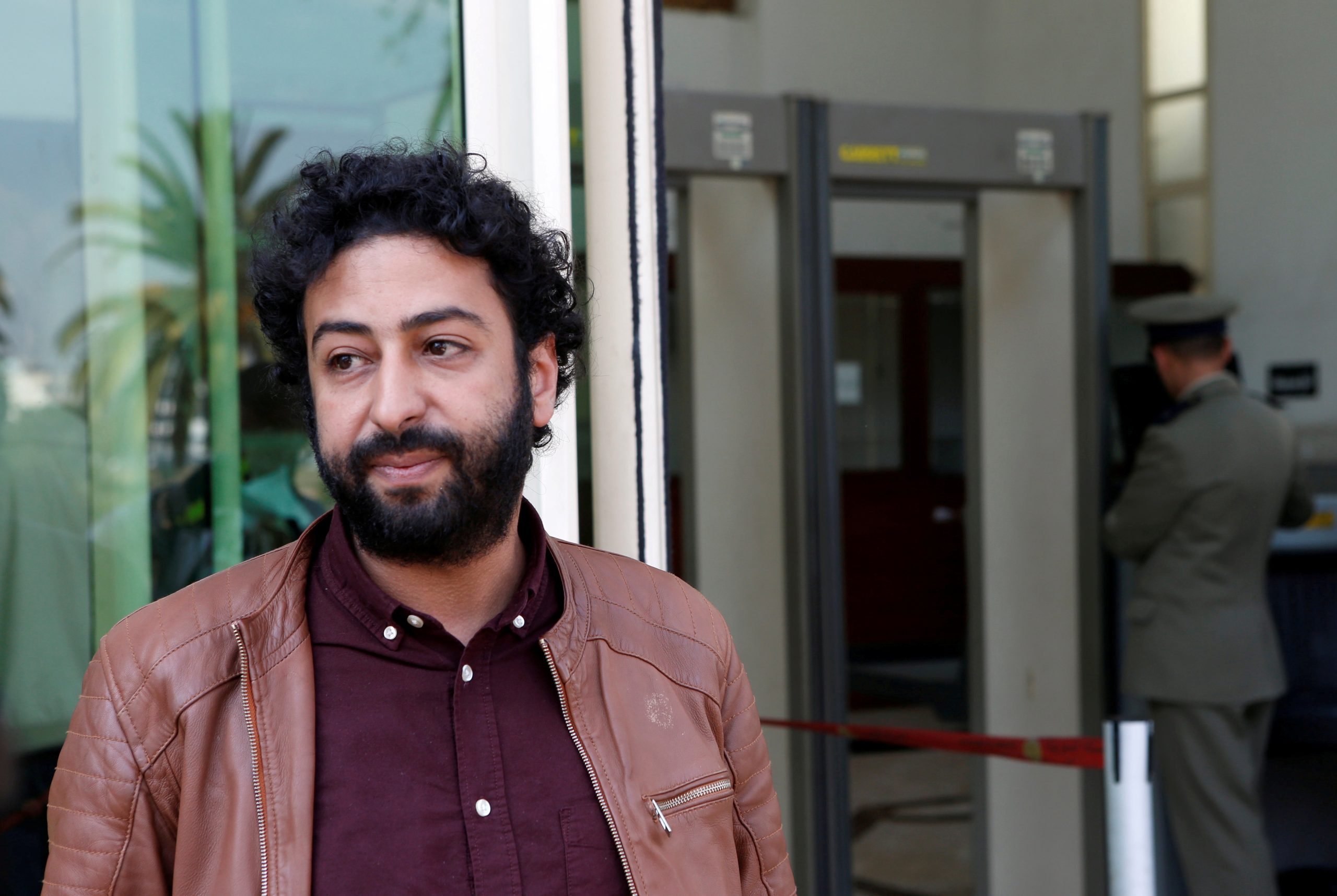© Photo by REUTERS/Youssef Boudlal
TrialWatch, an initiative of the Clooney Foundation for Justice, monitored the trial in Morocco of award-winning journalist Omar Radi on charges of insulting the judiciary.
Mr. Radi was convicted and given a four-month suspended sentence for a single tweet criticizing an appellate judge for upholding severe sentences for protesters. The Fairness Report released today concludes that Mr. Radi’s trial violated his fair-trial rights and his right to freedom of expression.
The trial took place in the context of an escalating crackdown by the Moroccan authorities against those who express dissenting political views on social media. Mr. Radi has long been in the government’s cross-hairs for his work investigating potential corruption and his public criticism of the authorities. Since the conclusion of his trial for insulting the judiciary, he has been charged with national security offenses and rape. TrialWatch plans to monitor that trial as well.
Professor Hannah Garry, who authored the report along with students in the USC International Human Rights Clinic, said, “This is a case that should never have been brought. Morocco should stop prosecuting journalists and respect their rights to freedom of expression and of the press as is required under Morocco’s international human rights obligations.” The Report also states that by “ignor[ing] the requirement to prove intent,” the court violated Mr. Radi’s right to be presumed innocent and concludes that its failure to engage defense arguments demonstrated a lack of impartiality. CFJ calls on Morocco to reverse Mr. Radi’s conviction on appeal and to ensure that any further proceedings against him are properly predicated and respect fair-trial rights.
Background
Mr. Radi is one of the only investigative journalists to have focused on the financial holdings of the King of Morocco. Prior to his trial, he had applied repeatedly for formal recognition of his status as a journalist but was repeatedly denied—including on the pretext that the authorities were unable to find the requisite documents in his application materials. The tweet at issue in this case concerned the judicial response to the Hirak Rif protests, which called for economic reform in Morocco—and in particular the twenty-year prison sentences that were imposed on protest leaders and upheld by the judge Mr. Radi criticized.
The Fairness Report, which is based on monitoring of the one merits hearing in the case, identified significant flaws in Mr. Radi’s trial, including:
- The judge did not address a defense argument that despite his lack of formal press credentials Mr. Radi should have been tried under Morocco’s Press Code, which would have meant that the prosecution had exceeded the applicable statute of limitations; and
- Despite the requirement to prove intent to insult the judiciary, the judge instead relied on how the tweet might have been taken, stating that “the occurrence of the insult is considered shameful and dangerous if it’s proven to have been taken as an insult by the civil claimant [the judge Mr. Radi criticized].”
Since his conviction on March 17, 2020 for insulting the judiciary, the authorities have investigated Mr. Radi on a range of other charges. On June 22, 2020, Amnesty International reported that forensic analysis of Mr. Radi’s phone revealed that he had been targeted by spyware. After this revelation, which Morocco asserted was a “baseless allegation[],” the authorities arrested Mr. Radi and a colleague for an alleged altercation with a cameraman from a news outlet supportive of the government that had previously published reports in line with the government’s theory that Mr. Radi was collaborating with foreign agents.
Several weeks later, Mr. Radi was arrested on national security and rape charges. These charges come nearly two years after the publisher of one of Morocco’s last opposition newspapers was convicted of aggravated sexual assault in a trial that the UN Working Group on Arbitrary Detention found was “judicial harassment attributable to nothing other than his investigative journalism.” Mr. Radi is now among “several independent journalists whom the Moroccan regime has accused of sexual assault.”
The Fairness Report on Mr. Radi’s trial for insulting the judiciary concludes, “Mr. Radi’s conviction may also have a broader chilling effect on the speech of other Moroccans.” It is critical that any prosecutions of journalists respect both their right to freedom of expression and their right to a fair trial.
For a full legal analysis of the trial and explanation of the grade that has been provided, please see the Fairness Report.
View statement in Arabic (العربية).
View report in Arabic (العربية).
